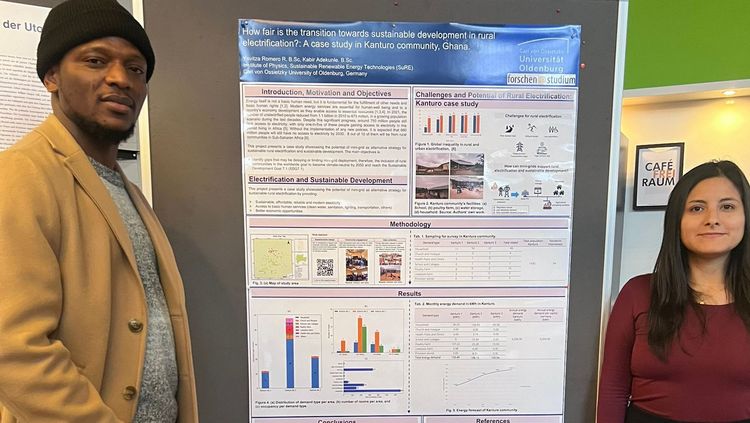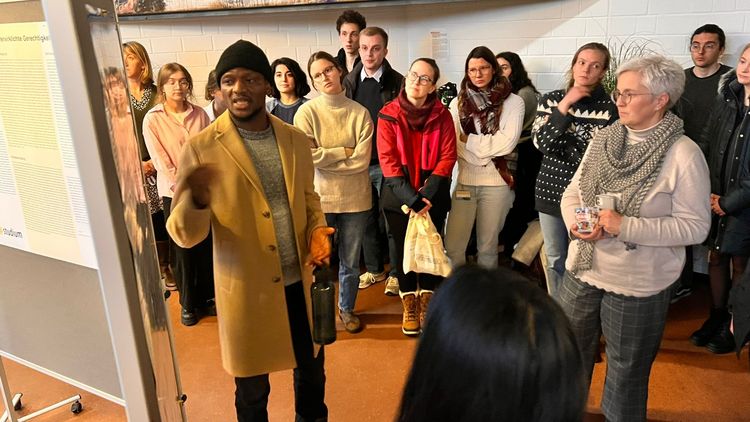On November 20th, 2024, two of our students, Yovitza Romero (SuRE 2022-24) and Kabir Adekunle (SuRE 2022-24), presented their project titled “Solar potential, mini-grid, and universal access to sustainable electricity in Sub-Saharan Africa: The case of Kanturo community, Ghana. How fair is the energy transition and sustainable development?”.
The research project aimed to study how fair the current energy transition and sustainable development progress in Sub-Saharan Africa in regard to remote and rural communities. It was properly identified the gaps that may be delaying or limiting mini-grid deployment, therefore the inclusion of such communities in the worldwide goal to become climate-neutral by 2050. In particular, the Kanturo community, in Ghana, was considered as a case study to properly and realistically assess the social, economic, political, financial, and technical limitations and opportunities that can characterize any other remote and rural community in Sub-Sahara Africa.
Firstly, the disparity between urban and rural electrification rate was analysed which revealed that high percentage of rural dwellers are not electrified compared to urban dwellers and majority of those affected in sub-Saharan Africa (only 30% rural communities are electrified in sub-Saharan Africa (World Bank, 2024)). In Ghana for example, only 70% (World Bank, 2024) of rural communities have access to electricity. Some of the identified factors for low rural electrification include difficult terrain, low population hence low load density and high poverty rate which affect ability to pay which makes grid extension not economically viable and makes mini grid a viable option considering the high irradiance in the tropical country.
The Kanturo community is a typical agrarian rural community in Ghana (sub-saharan Africa) with a population of 1435 residents. Using a bottom-up load aggregation approach in our survey, the current energy demand of the community is estimated at 449,58kwh/month which is expected to rise to 864.91kWh/month (92.38%) over a period of five years.
This project was funded by the University of Oldenburg and forschen@studium, starting on April 2024, under the supervision of Dr. Tanja Behrendt. On the other hand, B.Sc. Isaac Amuzu, student at University of Energy and Natural Resources in Ghana, constantly collaborate to the project, and in particular, with the on-ground data collection in the Kanturo community.
Text by: Yovitza Romero (SuRE 2022-24).



